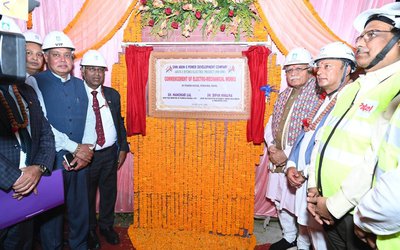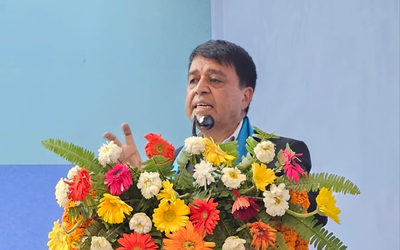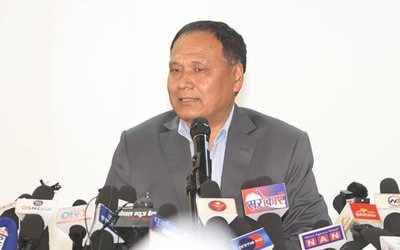Although it was unexpected, the report released by Nepal Rastra Bank, the central bank of the country, showed that Nepal's inflation was drastically lower from nearly 12 percent to 7.9 percent. At a time when prices of essential commodities have been increasing due to weakening Nepali rupee against US dollars and Nepal's economic performance is yet to show any sign of progress, Nepal Rastra Bank's (NRB) recent report of mid-August has surprised many.
According to the Macro Economic Situation of Nepal, a monthly economic update released by NRB, the prices of commodities under food and beverage group, and non-food and services group rose by 8.9 percent and 7 percent, respectively, during the review period. Last year, prices of food and beverages, and non-food and services had increased by 12.2 percent and 11.6 percent in the same period.
Average inflation was recorded at 9.9 percent in the last fiscal year, despite the government´s target to limit it within 7 percent. In the budget for fiscal year 2013/14, the government has set the target of containing inflation at 8 percent. Economists, however, have termed the target an ambitious one given the rising prices of fuel and other commodities owing to strong greenback.
Despite all these, export performance has continued to be sluggish. Merchandise exports (fob) registered a decline of 2.9% in FY2013 in US dollar terms, down from a growth of 6% in FY2012.[1] Exports in FY2013 totaled $981 million, down from $1 billion in FY2012, reflecting weak export demand as well as the continued decline in competitiveness arising from the rising costs of production, power shortages, and political uncertainties. Overall, merchandise exports declined to 5.1% of GDP in FY2013 from 5.3% of GDP in FY2012.
Economic prospects
Despite making certain progress in the first two months, Nepal's economy will depend upon how political settlement is found and remittance flow maintained. Although the present caretaker government was able to bring a full budget for the first time in the last two years, it is not alone sufficient to build the economic confidence.
Among the commodities falling under the food and beverage group, price index of meat and fish sub-group saw the highest increment of 17.4 percent during the review month. The inflation in the sub-group was recorded at 11.5 percent last year.
In foreign trade front, country´s trade deficit continued to increase, albeit at a lower rate, compared to trade figures of the same month last year. According to the central bank´s report, total trade deficit increased by 4.5 percent to Rs 41.56 billion during the review month. Trade deficit with India increased by 9.9 percent during the review period compared to an increase by 58.9 percent in the same period of the previous year.
However, trade deficit with other countries decreased by 4.4 percent in contrast to an increase of 36.3 percent during the same period of last year. The ratio of export to import was recorded at 15.4 percent during the review month compared to 15.3 percent during the same period of the last year.
“The rise in export to India during the review period is due to increase in export of zinc sheet, juice, Ayurvedic medicine and polyester yarn, among others,” says the report. However, the country´s export to third countries declined by 7.7 percent during the period due to drop in export of pulses, paper and paper products. Nepal´s third country exports had increased by 42.1 percent in the same month last year.
Similarly, total merchandise imports soared by 4.6 percent to Rs 49.15 billion in the review month. In the same month of last year, total merchandise imports had increased by 43.7 percent to Rs. 46.98 billion. Imports from India increased at a slower rate of 10.7 percent during the review month compared to 48.1 percent recorded in the same month of last year. However, import from other countries went down by 4.9 percent in the first month of 2013/14, compared to growth of 37.2 percent recorded in the same period last year.
Although the last months economic data indicated that economy is heading towards the right direction, it is too early now to predict the trend given Nepal's fragile political situation.

Debesh Adhikari
Adhikari is a computer science student and writes on various contemporary issues.
- The UK Expressed Deep Concerned About Tensions in Nepal
- Mar 09, 2017
- Development Partners and Ministry of Education Agree to drive quality education
- Sep 28, 2016
- END HUNGERNepal plans to end hunger by 2025
- Mar 14, 2016
- UK Hopes For Inclusive Resolution For Nepal
- Sep 17, 2015
- Micromax Launches Bolt D320 For Nepali Market
- Aug 07, 2015















